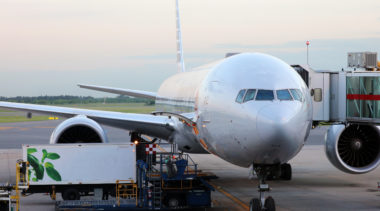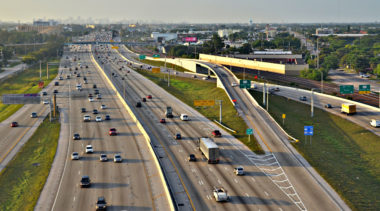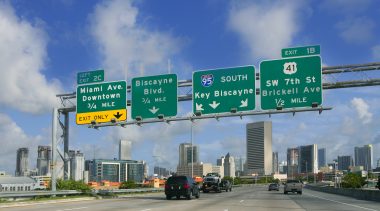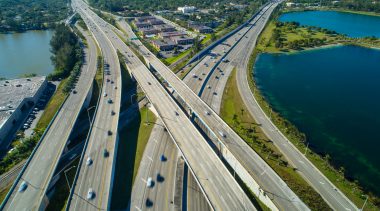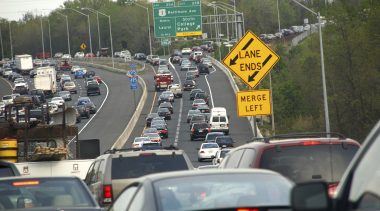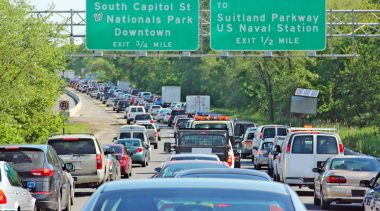Robert Poole is director of transportation policy and Searle Freedom Trust Transportation Fellow at Reason Foundation.
Poole, an MIT-trained engineer, has advised multiple presidential administrations and transportation departments on infrastructure issues.
Surface Transportation
In the field of surface transportation, Poole has advised the Federal Highway Administration, the Federal Transit Administration, the White House Office of Policy Development, National Economic Council, Government Accountability Office, and state Departments of Transportation in numerous states.
Poole's 1988 policy paper proposing privately financed toll lanes to relieve congestion directly inspired California's landmark private tollway law (AB 680), which authorized four pilot toll projects including the successful 91 Express Lanes in Orange County. More than 20 other states and the federal government have since enacted similar public-private partnership legislation. In 1993, Poole oversaw a study that coined the term HOT (high-occupancy toll) Lanes, a term which has become widely accepted since.
California Gov. Pete Wilson appointed Poole to the California's Commission on Transportation Investment and he also served on the Caltrans Privatization Advisory Steering Committee, where he helped oversee the implementation of AB 680.
From 2003 to 2005, he was a member of the Transportation Research Board's special committee on the long-term viability of the fuel tax for highway finance. In 2008 he served as a member of the Texas Study Committee on Private Participation in Toll Roads, appointed by Gov. Rick Perry. In 2009, he was a member of an Expert Review Panel for Washington State DOT, advising on a $1.5 billion toll mega-project. In 2010, he was a member of the transportation transition team for Florida's Governor-elect Rick Scott. He is a member of two TRB standing committees: Congestion Pricing and Managed Lanes.
Aviation
Poole is a member of the Government Accountability Office's National Aviation Studies Advisory Panel and he has testified before the House and Senate's aviation subcommittees on numerous occasions. Following the terrorist attacks of Sept. 11, 2001, Poole consulted the White House Domestic Policy Council and the leadership of the House Transportation & Infrastructure Committee.
He has also advised the Federal Aviation Administration, Office of the Secretary of Transportation, White House Office of Policy Development, National Performance Review, National Economic Council, and the National Civil Aviation Review Commission on aviation issues. Poole is a member of the Critical Infrastructure Council of the Los Angeles Economic Development Corporation and of the Air Traffic Control Association.
Poole was among the first to propose the commercialization of the U.S. air traffic control system, and his work in this field has helped shape proposals for a U.S. air traffic control corporation. A version of his corporation concept was implemented in Canada in 1996 and was more recently endorsed by several former top FAA administrators.
Poole's studies also launched a national debate on airport privatization in the United States. He advised both the FAA and local officials during the 1989-90 controversy over the proposed privatization of Albany (NY) Airport. His policy research on this issue helped inspire Congress' 1996 enactment of the Airport Privatization Pilot Program and the privatization of Indianapolis' airport management under Mayor Steve Goldsmith.
General Background
Robert Poole co-founded the Reason Foundation with Manny Klausner and Tibor Machan in 1978, and served as its president and CEO until the end of 2000.
He was a member of the Bush-Cheney transition team in 2000. Over the years, he has advised multiple presidential administrations on transportation policy.
Poole is credited as the first person to use the term "privatization" to refer to the contracting out of public services and is the author of the first-ever book on privatization, Cutting Back City Hall, published by Universe Books in 1980. He is also editor of the books Instead of Regulation: Alternatives to Federal Regulatory Agencies (Lexington Books, 1981), Defending a Free Society (Lexington Books, 1984), and Unnatural Monopolies (Lexington Books, 1985). He also co-edited the book Free Minds & Free Markets: 25 Years of Reason (Pacific Research Institute, 1993).
Poole has written hundreds of articles, papers, and policy studies on privatization and transportation issues. His popular writings have appeared in national newspapers, including The New York Times, The Wall Street Journal, USA Today, Forbes, and numerous other publications. He has also been a guest on network television programs such as Good Morning America, NBC's Nightly News, ABC's World News Tonight, and the CBS Evening News. Poole writes a monthly column on transportation issues for Public Works Financing.
Poole earned his B.S. and M.S. in mechanical engineering at the Massachusetts Institute of Technology (MIT) and did graduate work in operations research at New York University.
-
Why Metro Denver Should Consider the E-470 Toll Road Lease Proposal
A private company says it would pay off the toll road’s $1.9 billion debt, spend nearly $2 billion on improvements to the highway, and lower toll rates for E-470’s most frequent users.
-
An Attack on Pedestrian Safety Campaign and How We Talk About Transportation Policies
A well-meaning pedestrian safety effort generates ire.
-
Federal Public-Private Partnership Legislation: A Modest Proposal For Transportation Projects
There is a case for bipartisan agreement on policy changes that cost the government nothing but would increase the extent to which private capital is invited to invest in rebuilding America’s aging infrastructure.
-
Would Leasing a Toll Road Contradict the Users-Pay Principle?
Under the toll road leases that exist worldwide today, customers are protected from outsize rate increases, and their toll payments are used, properly, for the capital and operating costs of the toll road.
-
Satellite-Broadband Service Is the Best Way to Get Internet Access to Rural America
Throwing billions of taxpayers' dollars at rural broadband projects is not the answer to the digital divide.
-
Trump, Unions Call For More Taxpayer-Funded Airline Bailouts
Paying tens of thousands of airline employees not to work for three more years—waiting for air travel to return to pre-pandemic levels— makes no sense for federal taxpayers or airlines.
-
America Needs to Prioritize Rebuilding and Modernizing Interstate Highways
“The interstates have long been the backbone of our country’s transportation system, but most of them have exceeded their design lives and in many places are worn and overused."
-
Why the New House Transportation Bill Wouldn’t Achieve Its Environmental Goals
If Congress really wanted to make transportation greener, it would provide more incentives for electric vehicles and encourage intercity buses to take Amtrak’s place.
-
Central Planning of Airline Service Is a Bad Idea — Even If Airlines Took Bailouts
Airlines are required to continue serving all the points they served on the date the coronavirus stimulus bill passed, regardless of whether they have any passengers.
-
The Airlines and Boeing Don’t Deserve Special Treatment In Coronavirus Stimulus Bill
Taxpayers should not be put at financial risk by lending their money to poorly-run businesses.
-
Florida Legislators’ War on Tolling Comes With Costs
The ways the financial bond market and rating agencies have reacted to the state's anti-tolling measures should be a big wake up call to the governor and state legislature.
-
Florida’s Anti-Toll Legislation Threatens the State’s Economy
Florida has $10 billion in planned toll projects in the pipeline. These projects are now in peril unless the state’s recent anti-toll policies are reversed.
-
Removing Palmetto Express Lanes and Banning Tolls Would Hurt Miami-Dade
If the bill to abolish the express lanes were enacted, the result would be more traffic congestion.
-
Priced Express Lanes Are a Proven Way to Reduce Highway Congestion
Orange County was the site of the world’s first priced express lanes in 1995. With sensible planning, it could also be first in the nation with a seamless network of priced express lanes.
-
Remembering Shirley Ybarra
The former Virginia secretary of transportation and Reason policy analyst made many many important impacts on the transportation world.
-
Maryland and Virginia’s Congestion-Busting Mega-Project
The governors of Maryland and Virginia announced an agreement to rebuild the American Legion Bridge, enabling the completion of America’s largest region-wide network of express toll lanes.
-
Why Highway Tolls Align With Conservative Principles
When some conservatives oppose tolls and investor-managed highways as contrary to conservative principles, in effect they prefer the existing model of tax-funded, state-owned enterprises.
-
Examining Claims About Induced Demand, Adding Road Capacity and Traffic Congestion
The “iron law of roadway congestion” isn’t.










